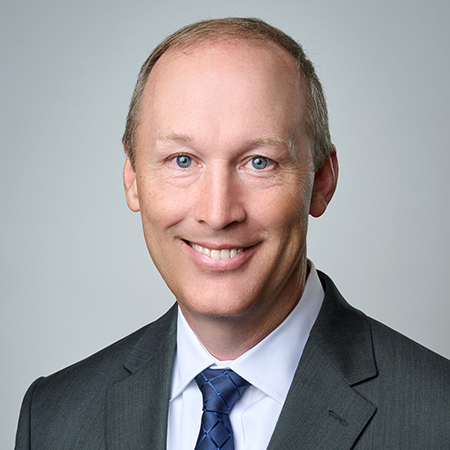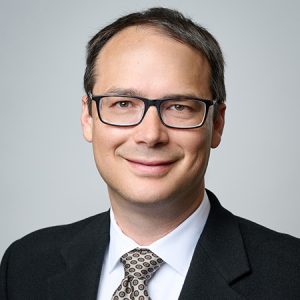Breadcrumb
“How Our Nuclear Research Reactor Fights Cancer Globally”
Speakers:
Matt Sanford
Executive Director, University of Missouri Research Reactor
John Brockman, PhD
Associate Director of Research and Education, University of Missouri Research Reactor
Date: June 12, 2025, noon-1 p.m.
Location: Roy Blunt NextGen Precision Health Building, Atkins Family Seminar Room
 Register Here
Register Here
Event Recording
60-Second Summary
Description
“Medical isotopes produced at the MU Research Reactor are used to treat over 450,000 patients in the United States each year.”
Matt Sanford, executive director of MURR
When people think of “nuclear,” they usually think of power, but the University of Missouri Research Reactor, or MURR, in Columbia is something special. The team of experts that’s assembled there over the last 50 years is responsible for saving countless lives, shipping scores of cancer treatments around the world.
In fact, there are times throughout the year when MURR is the only supplier of certain medical radioisotopes in the world. That demand continues to rise, in part because revolutionary new cancer drugs are emerging.
“The world is in the middle of a nuclear renaissance,” says Matt Sanford, executive director of MURR. “Two new FDA-approved drugs use an incredible technology called targeted radiotherapy, where the radioactive agent made at MURR is attached to a targeting molecule. And that molecule, through an IV, carries the agent directly to cancer cells to kill that cancer without damaging surrounding tissues.”
Those two new drugs are Lutathera, targeting neuroendocrine tumors, and Pluvicto, targeting prostate cancer. MURR remains the only U.S. manufacturer of the active ingredient in both, lutetium-177.
Being the only reactor in the world that operates 52 weeks per year has made MURR a major destination for researchers and pharma partnerships. Now, Mizzou has announced an ambitious new plan to build a second reactor called NextGen MURR, to accelerate production and bolster domestic supply chains for these critical cancer products.
“NextGen MURR would be a larger research reactor with more power,” says Sanford, “which would also enable us to make isotopes we can’t make today, with different energies and different half-lives that can be tailored to these new cancers that we’re targeting.”
Hospitals around the world already depend on Mizzou for therapeutics to treat thousands of patients daily. Now, right here in Missouri, our full-spectrum research capabilities and global-scale production capacity situate us uniquely to lead the next generation of nuclear medicine.
About the Speaker
 Matt Sanford oversees all aspects of MURR, including research and education programs, reactor operations, and products and services. Sanford provides leadership to a diverse workforce in a highly technical and regulated environment, promotes the principles of maintaining a healthy nuclear safety culture and drives continuous improvement of safety, compliance, reliability and quality in all of MURR’s systems.
Matt Sanford oversees all aspects of MURR, including research and education programs, reactor operations, and products and services. Sanford provides leadership to a diverse workforce in a highly technical and regulated environment, promotes the principles of maintaining a healthy nuclear safety culture and drives continuous improvement of safety, compliance, reliability and quality in all of MURR’s systems.
Sanford is a University of Missouri graduate and began work at MURR in 1989. He served as Associate Director of MURR from 2010-2023. He was appointed as the MURR Interim Executive Director from 2017-2018 and again in November 2022 before being named MURR Executive Director in July 2023.
Sanford is a graduate of the President’s Academic Leadership Institute, served as a delegate to the International Atomic Energy Agency of the United Nations, and serves on the Board of Directors of the Council on Radionuclides and Radiopharmaceuticals, Inc.
 Dr. John Brockman's group works on problems in diverse fields that benefit from radio-analytical techniques. Currently, the group is working on problems in pre and post detonation nuclear forensic analysis, trace element epidemiology, and nuclear engineering.
Dr. John Brockman's group works on problems in diverse fields that benefit from radio-analytical techniques. Currently, the group is working on problems in pre and post detonation nuclear forensic analysis, trace element epidemiology, and nuclear engineering.
About the Discovery Series
The NextGen Precision Health Discovery Series provides learning opportunities for UM System faculty and staff across disciplines, the statewide community and our other partners to learn about the scope of precision health research and identify potential collaborative opportunities. The series consists of monthly lectures geared toward a broad multidisciplinary audience so all can participate and appreciate the spectrum of precision health efforts.
For questions about this event or any others in the Discovery Series, please reach out to Mackenzie Lynch.